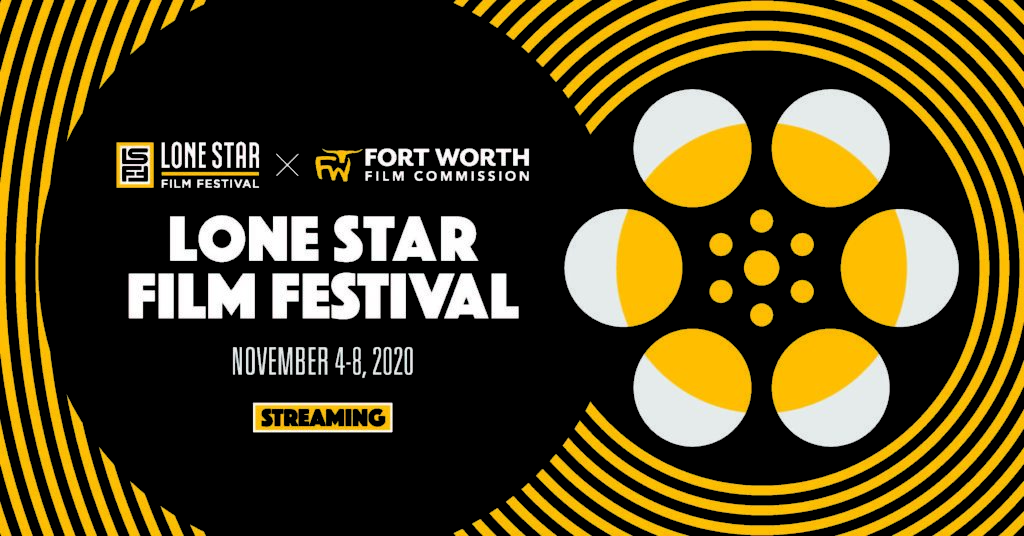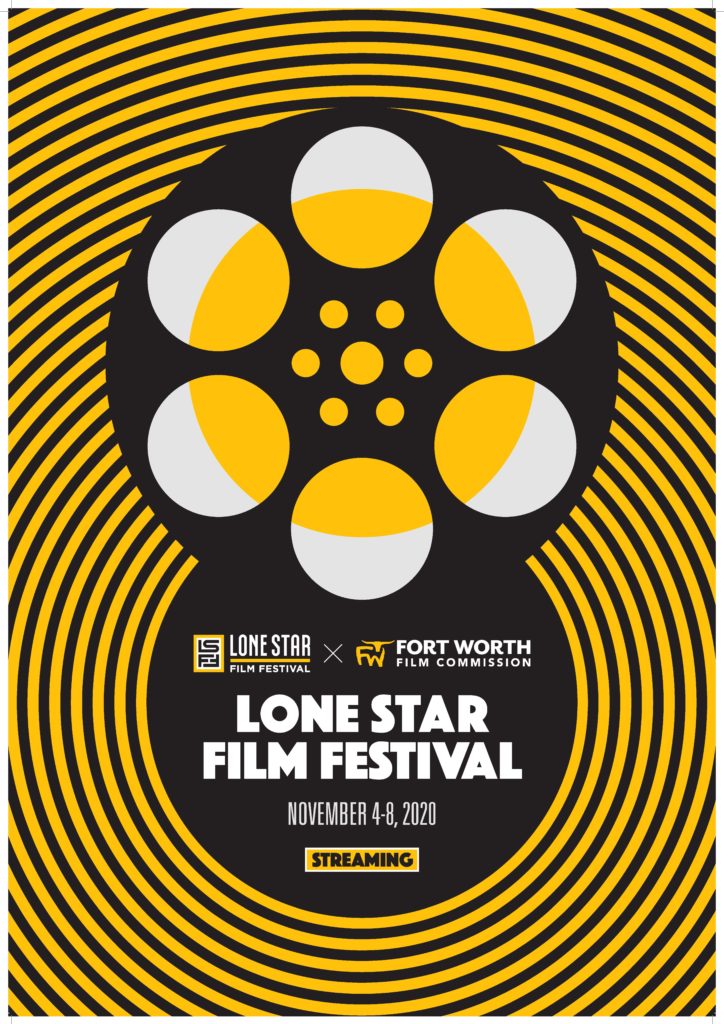Going Virtual: Reimagining the Lone Star Film Festival
The Lone Star Film Festival (LSFF) has become a touchstone for cinema fans of all varieties, from film enthusiasts to industry professionals. Balancing a selection of independent and big–studio/big–budget features, they curate everything from documentaries to shorts. The event has also become known for bringing in luminaries like Billy Bob Thornton, Jeff Bridges, Martin Sheen, and local hero, the late Bill Paxton.

The event celebrates its 14th year under the unique constraints of 2020. After holding out hope for a “normal” festival, the event’s leadership finally made the tough decision in August to cancel all in-person events due to the concerns surrounding the pandemic.
Although this year’s event will lack many of the networking opportunities that festival–goers have come to expect, the festival will utilize streaming options like Facebook Live, YouTube, and Zoom to allow for ongoing conversation with industry insiders.
Filmmaker Red Sanders of Red Productions – now the Chair of the LSFF Board – was a TCU student volunteer when the first festival set up in Sundance Square. “It has been cool to see how the festival has grown over the years, thanks in large part to Johnny Langdon’s support. I think it is an important piece in the cultural landscape of Fort Worth.”
Co-founder Langdon, who passed away in 2017, was integral in developing the LSFF, which he established following the dissolution of the smaller-scale Fort Worth Film Festival in 2002. In honor of his work, organizers announced the new Johnny Langdon Film Education Initiative, which will help to bring valuable work experiences to students interested in film as a career.
This educational component is key to Executive Director Chad Mathews, as it allows him to develop programs that share film concepts and practices with the next generation of filmmakers. Especially important to him are those young people in the Boys and Girls clubs, who would otherwise not have access to the technology and expertise that the LSFF’s partnership allows. “Growing that side of our efforts was a big part of my joining Lone Star. This was our first year with them.”
Mathews balances his time between developing these educational projects and overseeing the festival’s direction alongside the nine board members dedicated to elevating the role of cinematic arts play in Fort Worth. They continue to build partnerships with local organizations that encourage these efforts, including the Young Women’s Leadership Academy, the Cowgirl Hall of Fame, and Texas Christian University.

A significant partnership for this year’s event will be the Fort Worth Film Commission acting as title sponsor. The organization has successfully brought films, television, and commercial production to Tarrant County, which has dramatically expanded over the past five years. The Commission supports the creative artists who reside in the city and brings creative projects to town. Everyone benefits. They have also been integral to the Lone Star Film Festival’s growth through marketing efforts and their hosting of the justly famous Filmmaker’s Lounge.
The LSFF has continued to grow in recent years, showing 118 films in 2019. Mathews expects over 130 titles for this year’s virtual event, once the programming is complete. Hopeful filmmakers submit hundreds of movies for consideration. The team works through them to evaluate which titles offer the finest possible selection for the festival. They create a diverse group of films to fill every category, including short films, feature films, and documentaries which cover a variety of genres. Mathews adds, “Our event is for those who have an interest in content they wouldn’t normally see.”
This year’s festival runs from November 4th through November 8th. The Film Society announced the roster of films at the start of October, and tickets went on sale two weeks later. Cinesend, which manages virtual festivals, will offer streaming access for shows a la carte as well as an all-access badge for those who want to watch as many titles as possible. Tickets and passes will range from $5 to $75.
Going virtual allows the festival’s producers to eliminate the most problematic aspects of an in-person event, such as competing showtimes and other elements of accessing films across a tight schedule. Audiences can stay home and soak in all the selections without having to run from one theater to another.
Red Sanders joined the board last year and was named Chair a month before COVID-19 shut things down. He welcomes the opportunity to reconsider the formula for how we administer festivals. “As someone who attends a lot of film festivals, the model was ripe for a little disruption. Now we can see what we can learn or change from what we’ve done before.”
 An Austin native, Lyle Brooks relocated to Fort Worth in order to immerse himself in the burgeoning music scene and the city’s rich cultural history, which has allowed him to cover everything from Free Jazz to folk singers. He’s collaborated as a ghostwriter on projects focusing on Health Optimization, Roman Lawyers, and an assortment of intriguing subjects requiring his research.
An Austin native, Lyle Brooks relocated to Fort Worth in order to immerse himself in the burgeoning music scene and the city’s rich cultural history, which has allowed him to cover everything from Free Jazz to folk singers. He’s collaborated as a ghostwriter on projects focusing on Health Optimization, Roman Lawyers, and an assortment of intriguing subjects requiring his research.


 Sign in
Sign in

